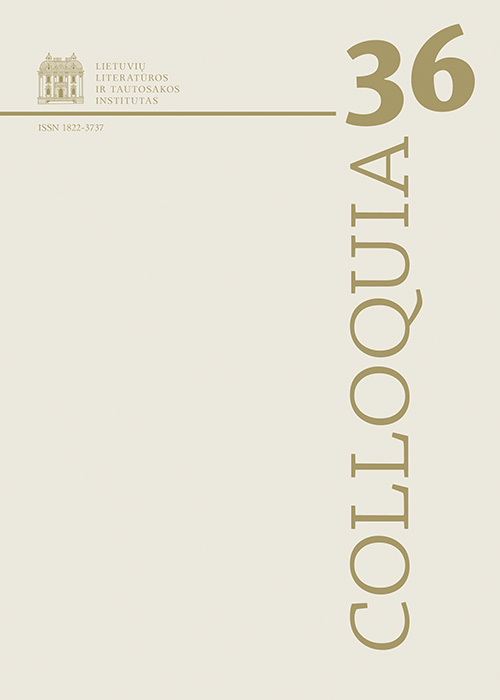(Ne)būčiai atviros egzistencinės laiko patirtys Vaidoto Daunio ir Valdo Gedgaudo poezijoje
Santrauka
Straipsnis skirtas išnagrinėti Vaidoto Daunio ir Valdo Gedgaudo poezijai būdingas egzistencines patirtis, parodant egzistencinės filosofijos ir ypač lietuviškų jos ištakų aktualumą šiuolaikinėje lietuvių poezijoje, tęsiančioje žemininkų ir bežemių patirtinės tikrovės tradiciją. Pagrindinė teorinė atrama yra Juozo Girniaus egzistencinė filosofija. Svarbiausia analizuojamos poezijos problema yra žmogaus laikiškumas (istoriškumas), egzistencinė laiko patirtis. Ji išryškėja nagrinėjant metų laikų ir liturginio laiko pavidalus Daunio ir Gedgaudo poezijoje. Įmanu teigti, kad idėjinis literatūros sąlytis su egzistencializmu, egzistencinei poezijai būdingos patirtys yra išskirtinis ne tik jų, bet ir visos kartos bruožas. Iki šiol tarpusavyje nelygintų poetų kūrybos tyrimas parodo jų reprezentuojamą šiuolaikinės egzistencinės poezijos trajektoriją, leidžiančią atnaujinti šių autorių kūrybos skaitymą.
Atsisiuntimai
Skaitomiausi šio autoriaus(ų) straipsniai
- Dalia Jakaitė, Maldos įspaudai atmintyje: lyrinio subjekto patirtys Alfonso Nykos-Niliūno ir Czesławo Miłoszo poezijoje , Colloquia: T 50 (2022): Colloquia
- Dalia Jakaitė , Tragizmas ir katarsis Alfonso Nykos-Niliūno ir Broniaus Krivicko eilėraščiuose , Colloquia: T 43 (2019)
- Dalia Jakaitė, Maldos poezija Henriko Nagio ir Liūnės Sutemos pokalbiuose: nuo nevilties iki išsigelbėjimo , Colloquia: T 46 (2021)
